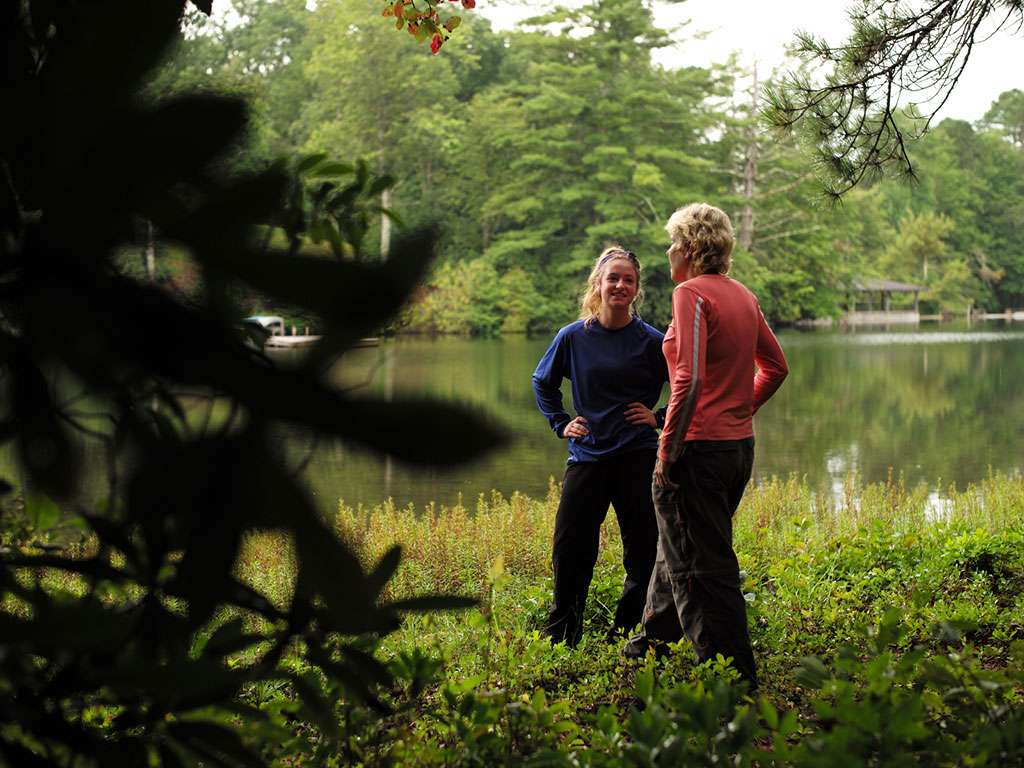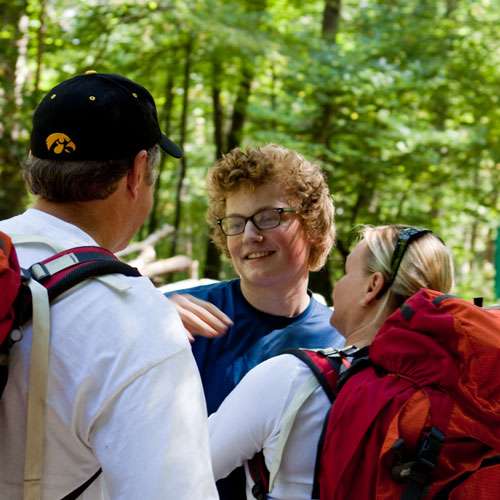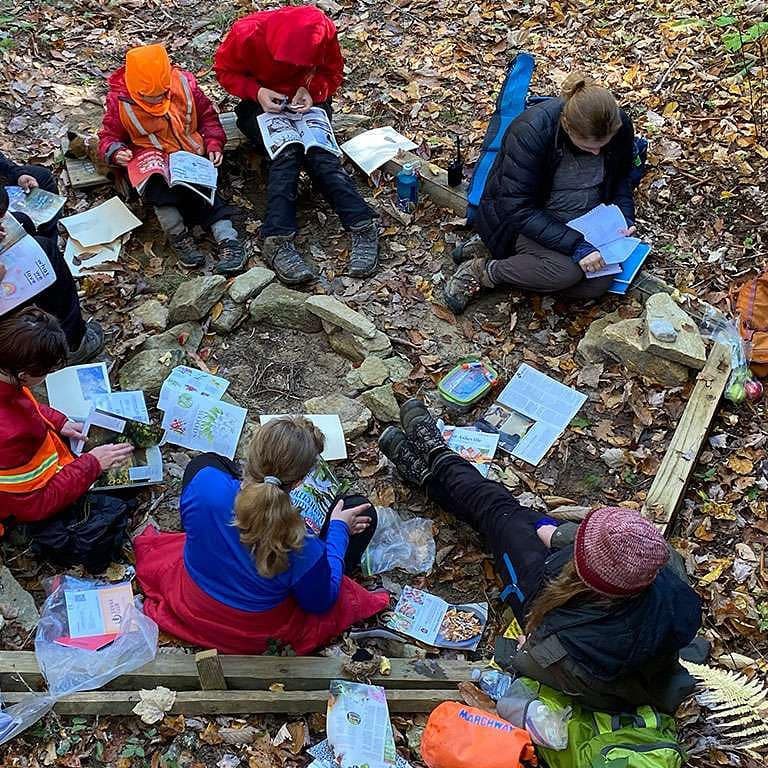Tuition & cost of wilderness therapy Programs
By the time students come to Trails, many have been in therapy before. Some come to our program from an inpatient hospitalization program, while others have had experience with weekly therapy sessions for months or years.
Whatever treatment they’ve had previously, one thing is clear: the child and the family are still searching for a path toward healing and growth that is sustainable and long-lasting.
When you enroll your child in one of our wilderness therapy programs, you can feel confident that you are investing in expert individualized treatment and mental health care from our team of highly skilled, professional clinicians.
What Does Tuition At Trails Carolina Cover?
We understand the challenges you are facing and the weight of making decisions for your child’s future. With over a decade of producing proven results and positive change in the lives of many struggling teens, children, and their families, we are here to help.
At Trails Carolina, our goal is to provide the most effective and impactful wilderness experience for your child. Our tuition includes:
How Does The Cost Of Wilderness Therapy Compare To Other Therapeutic Treatment Options?
Finding the right level of care for your child’s mental health needs can involve multiple clinical assessments, trying out various types of therapeutic treatment for mental health issues—some more effective than others—, and eventually finding a method or combination of methods that make a sustainable, positive impact.
It can be tough to know where to start or where to turn next.
That’s why we’ve put together some resources to help you compare the main mental health treatment options for adolescents—
- weekly therapy,
- intensive outpatient therapy,
- inpatient hospitalization,
- residential treatment centers and therapeutic schools,
- and outdoor behavioral therapy and wilderness therapy programs.
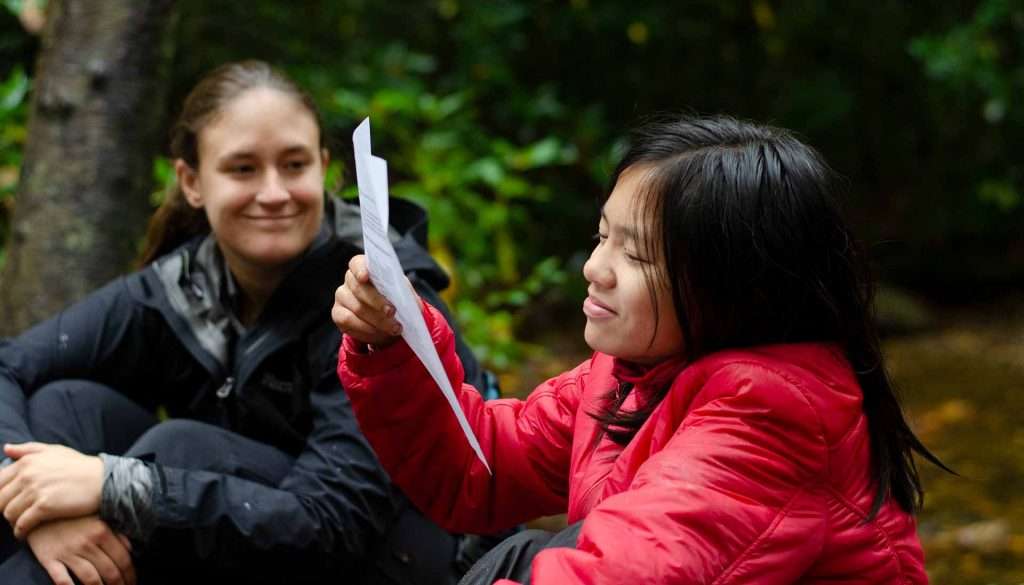
Popular Therapeutic Treatment Options For Teens & Youth:
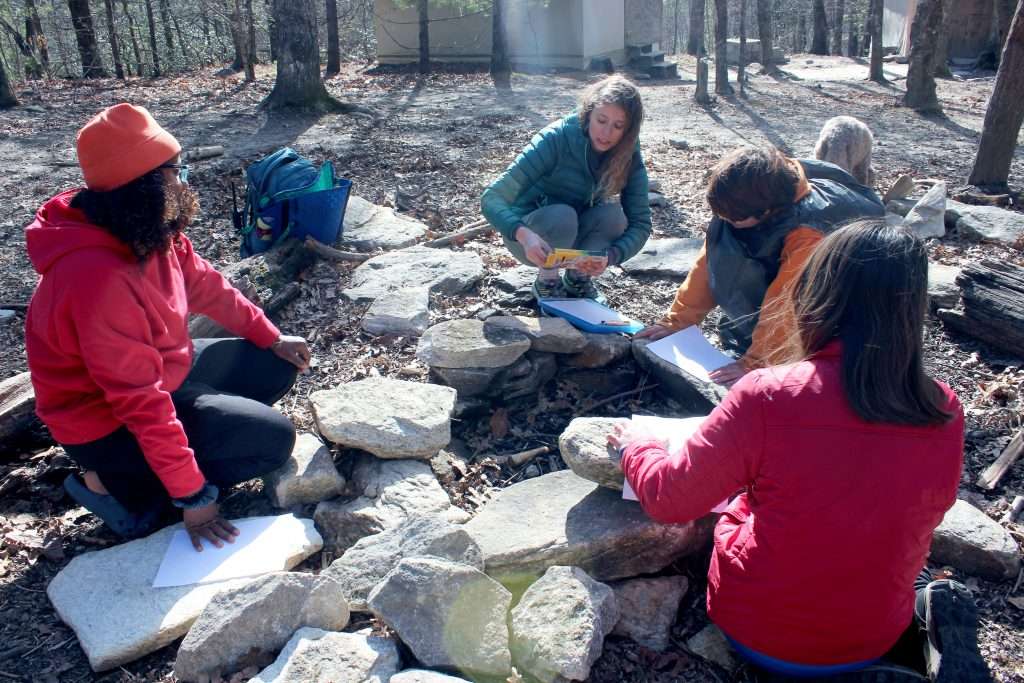
What it is: One-hour per week or every other week sessions with an individual therapist to address specific issues, practice coping skills, and check in on progress.
When it’s appropriate: When a person can benefit from weekly support and does not require a level of care that is more intensive, holistic, or frequent.
What it is: Three to four hours of treatment per day for 3-5 days per week. Treatment typically involves individual and group therapy sessions. Students can benefit from IOP while attending school, living at home, and participating in other daily activities.
When it’s appropriate: When a person is able to remain at home and is managing well enough in school, but needs more frequent and intensive therapeutic support than what is offered via weekly therapy sessions.
What it is: Acute stabilization or integrated medical and mental health interventions provided in a psychiatric hospital or the psychiatric unit of a hospital. Inpatient hospitalization is a short-term intervention to stabilize an immediate problem that can be adjusted to meet the needs of the specific emergency. The goal of inpatient treatment is to get a person better during and immediately after a crisis such as self-harm, suicide ideation, or suicide attempt.
When it’s appropriate: When an individual may be a danger to themselves or others. To address an immediate mental health crisis, self-harming, or suicide attempt.
What it is: Live-in or residential treatment programs in a setting similar to that of a community living space or boarding school. Therapeutic boarding schools incorporate academics and can span the length of a school year. RTCs and Therapeutic Boarding Schools typically offer therapeutic services, support services for academics and life skills, and round-the-clock monitoring to ensure physical and emotional safety. Residential treatment programs focus on long-term recovery after inpatient treatment.
When it’s appropriate: When the individual needs 24/7 structure and would benefit from having space away from school and daily life, with added academic support. This type of environment might be appropriate for students struggling with social skills, poor academic achievement, learning differences, or improved behavior management strategies beyond what traditional schooling can offer. Appropriate when issues are ongoing, following hospitalization for a mental health crisis, or for children of families who desire or require a longer duration of stay and level of care. This level of care is one of the most effective options for long-term, sustainable healing.
What it is: A uniquely different, long-term therapeutic wilderness program that emphasizes a whole-person approach to treatment and recovery. It involves minimal distractions, experiential education, and immersion in a wilderness setting to address what is causing a child to struggle and includes both individualized and group therapies, natural horsemanship, mindfulness, as well as outdoor adventure activities such as hiking, bouldering, and camping in order to help students develop interpersonal skills and self-confidence while reaping the therapeutic healing benefits of nature. The goal of wilderness therapy is to help individuals identify and address underlying issues through the use of experiential therapy and develop coping skills to overcome challenges.
When it’s appropriate: When the individual needs 24/7 care, who would benefit from having space away from school and daily life, and who find a nature-based setting healing. Appropriate when issues are ongoing, following hospitalization for a mental health, disordered eating, self-harm, or substance abuse crisis, or for children of families who desire or require a longer duration of stay. This level of care is one of the most effective options for long-term, sustainable healing.
Trails Carolina partners with Sky's The Limit Fund, a grant organization that provides financial assistance for wilderness therapy and coaching for the transition home to youth in crisis and their families in need.
Apply for financial assistance from Sky's The Limit, or donate to the fund to help support other families in need.
Let's Compare The Main Therapeutic Treatment Options
Average Daily Cost
We compare the average price range of each treatment option based on a daily rate. Please keep in mind that the pricing of some programs may be affected by the option to submit to insurance. All ranges have been gathered based on estimates listed by other programs, treatment centers, and hospitals.

Weekly Therapy
$20-$100/hour
Therapeutic Boarding School (RTC)
$400-$1000/day
Intensive Outpatient
$600-$1000/day
Wilderness Therapy
$600-$1000/day
Inpatient Hospitalization
$600-$2000/day
Length Of Stay
We compare the average length of time spent receiving treatment for each option. All ranges have been gathered based on estimates listed by other programs, treatment centers, and hospitals.

Inpatient Hospitalization
3-10 days
Weekly Therapy
1 hour/week
Intensive Outpatient
30-60 days
Wilderness Therapy
75-90 days
Therapeutic Boarding School (RTC)
9-12 months
Level Of Care
We compare the level of care based on the types of therapeutic practices typically provided by each treatment option. All data has been gathered based on the information listed by other programs, treatment centers, and hospitals.

Weekly Therapy
25-35%
Intensive Outpatient
50-60%
Inpatient Hospitalization
70-80%
Therapeutic Boarding School (RTC)
85-95%
Wilderness Therapy
85-95%
Long-Term Success Rate
We compare the short-term vs. long-term positive outcomes for each treatment option. Please keep in mind that there are many factors that contribute to the success rate of a program. All data has been gathered based on the information listed by other programs, treatment centers, and hospitals.

Inpatient Hospitalization
40-45%
Weekly Therapy
55-60%
Intensive Outpatient
65-70%
Therapeutic Boarding School (RTC)
75-80%
Wilderness Therapy
80-85%
More On Understanding Success Rates
The success rate of a mental health treatment program is generally determined by how much an individual’s symptoms and concerns improve from before treatment to after receiving treatment. Success rates are affected by many factors, not all of which are easily quantifiable. Here are some examples of what factors contribute to understanding the success rate of a treatment option:
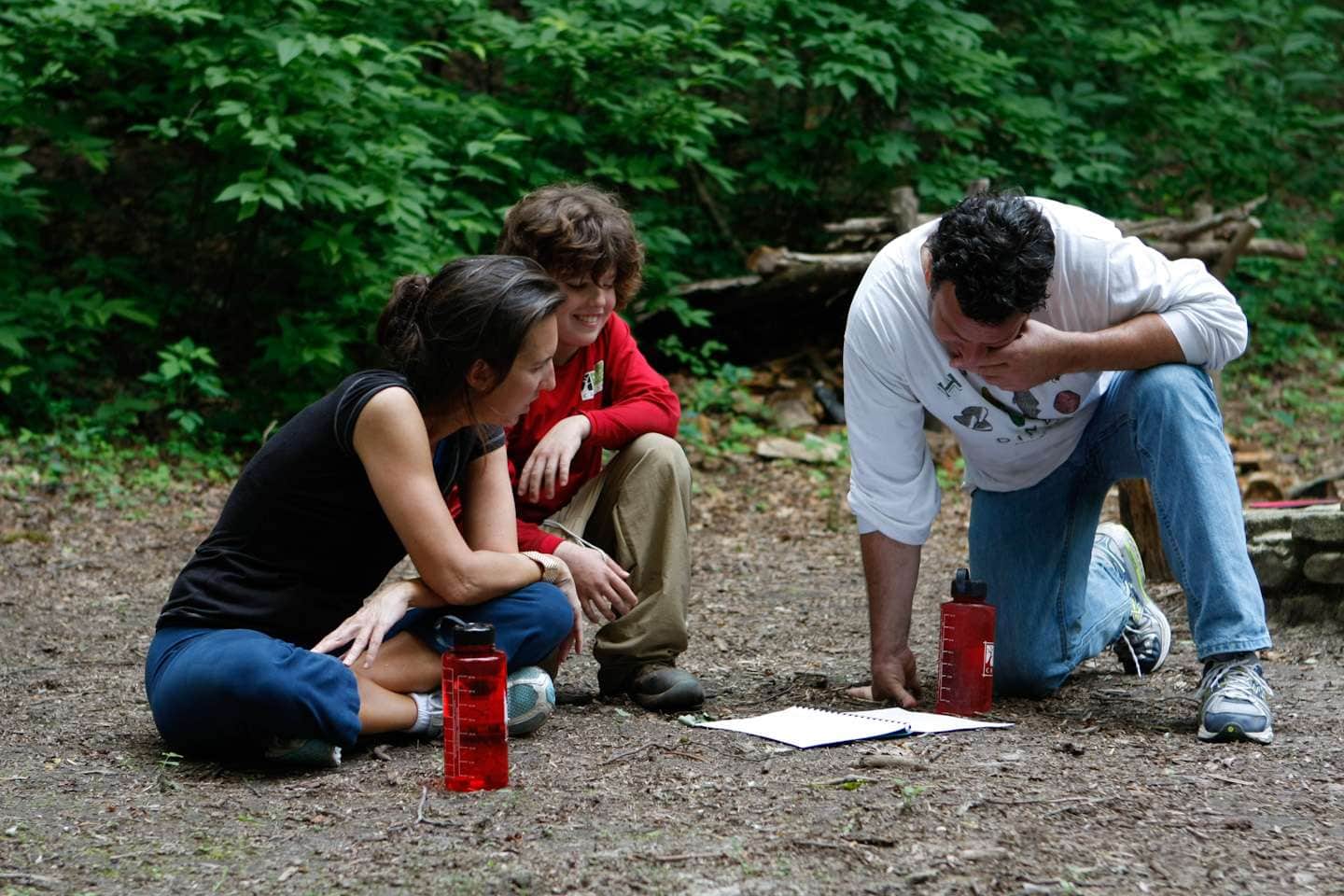
Some treatment options (ex. inpatient hospitalization) are designed specifically to stabilize an immediate life-threatening concern, such as a suicide attempt. Most long-term programs are designed to address the root cause of the concern by helping the individual gain an understanding of their emotions, goals, and triggers, as well as develop and practice healthy coping skills.
We understand that sometimes treatment is necessary. Some parents have no alternative other than to enroll their child into a treatment program for genuine fear for the child’s life. Still, we recommend giving your child the option to weigh in on this decision, especially since individuals who choose to enter a treatment program are more likely to get the most out of the program, and the longest-lasting benefits and personal growth.
Long-term success rates are higher when programs focus on transitions, aftercare planning, and helping participants develop and practice using coping strategies and skills. Even with the best intentions, people are susceptible to being influenced and can fall into old patterns. It can be difficult for people to resist temptations if they don't fully accept the methods to change their behavior and offset triggers, but practicing how to overcome challenges in simulated scenarios during treatment can help.
FAQs: The Value & Cost of Therapeutic Wilderness Programs
Tuition is based on a daily rate of $715 per day for our Youth Groups (10-13) and $675 for our Adolescent Groups (14-17). We request that the initial deposit covers the first 42 days plus the Enrollment Fee of $4,900.
The typical length of stay in our program is 85 days.
A student's length of stay is based upon their progress. The family is on the phone with the student's primary therapist each week to review their week as a whole and what the goals are for the upcoming week. The family is a part of the progress evaluation each step of the way.
Trails Carolina is a private pay program. Most insurance companies won’t cover the cost outright. When the child’s stay is complete, we’ll issue an insurance breakdown that can be submitted to your insurance company for reimbursement. This typically totals 20% of total costs.
We work with Sky's the Limit Fund, a grant organization that helps offset the cost of wilderness therapy programs. They are often able to award families $8,000-$10,000 to help with tuition costs.
The cost of wilderness therapy programs can vary depending on a number of factors, such as the length of the program, the location, and the type of services provided. Typically, the enrollment fee covers food, lodging, transportation, and equipment. Please see above for a more extensive list of the services and materials covered by tuition at Trails Carolina.
Wilderness therapy has been shown to be an effective treatment modality for a variety of issues.
While the immediate benefits of enrolling your child in our program are often seen in improved mental and emotional well-being, reduced risk of substance abuse, and improved behavior, the long-term benefits are just as significant.
Trails Carolina has developed a multi-year outcome study to allow us to better understand the efficacy of our program.
Many of our alumni report increased self-confidence, autonomy, and motivation in their lives after completing our program. In addition, they often form lasting friendships and develop a greater appreciation for nature and the outdoors, which can help strengthen healthy relationships within families.
We are results-driven at Trails Carolina, and our outcome data speaks for itself.
One year after graduation:
- 86% of students showed improvement in anxiety symptoms
- 93% of students showed improvement in depression symptoms
- 96% of students reported experiencing a decrease in substance use
- 98% of students reported experiencing a decrease in suicidal thoughts
- 98% of students reported experiencing a decrease in aggressive behaviors
- 87% of students felt excited about school.
We offer therapeutic wilderness programs for Youth Groups (ages 10-13) and Adolescent Groups (ages 14-17) who struggle with mental health issues, behavioral and emotional concerns, learning differences, school refusal, family and peer relationship challenges, and technology/video game obsession.
Our admissions team will work with you to determine whether our program is a good fit for your child.
Your family is an important part of the wilderness therapy process, and we offer a number of resources to support you throughout your child’s treatment. These resources include:
- Bi-Weekly Calls with a Family Coach
- Parent Education, Yoga, and Mindfulness Workshops
- Weekly Check-in Calls with Child's Primary Therapist
- Sibling Support
- Family Reunification Programs and Graduation Celebration
- Family Transition Planning
- Alumni Family Support Calls
We partner with a number of schools to provide integrated academic programming for our students. Our residential staff includes certified educators to help keep your child on track academically. Students can maintain or even improve their grades while enrolled in our program.
The staff at Trails Carolina are highly skilled and experienced professionals who are dedicated to helping our students reach their full potential. Our team includes Licensed Mental Health Professionals, Certified Teachers, Certified Wilderness First Responders, and more.
Our Admissions Team Is Ready To Help
For many families, Trails Carolina is not the first therapeutic treatment option they’ve tried. Because of this, many of our students come to us burnt out on therapy, and our clinicians recognize this. We make it our goal to meet our students where they are.
We also understand that for most families, the cost of any therapeutic program is an important consideration when determining the best treatment program for their child.
Our Admissions Team has helped make wilderness therapy an accessible option for many families, and we want to help you, too. Get started today by filling out the form below or using our Chat Box in the bottom right corner.
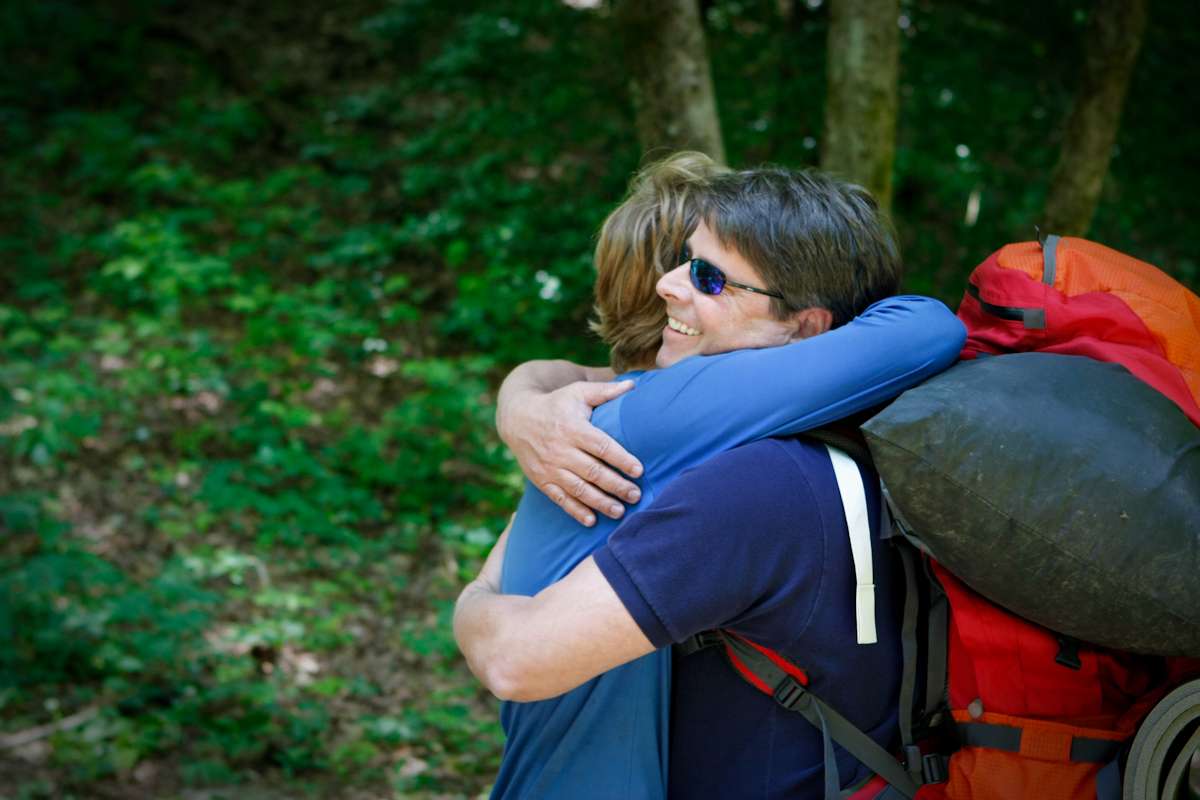
Get started today
Contact us today to learn how Trails Carolina can help your family
Trails saved my daughter’s life. Amanda is an amazing human and a brilliant therapist. I am so grateful to her, Science Steve, and the other wonderful people who could reach my daughter at a time when I could not.
Margot Lowman August 2022
Great life changing experience for our son. After becoming addicted to gaming during covid he was very depressed. At Trails he experienced the wilderness, Science Steve, learning survival skills and top notch therapy and support etc… I highly recommend! This gave our son and our family a renewed family bond full of love and excitement about his bright future.
Winnifred Wilson July 2022
Outstanding clinical work and superb staff! There’s a great culture at this company and it shows with how they engage with families/clients.
Kristin Brace June 2022

